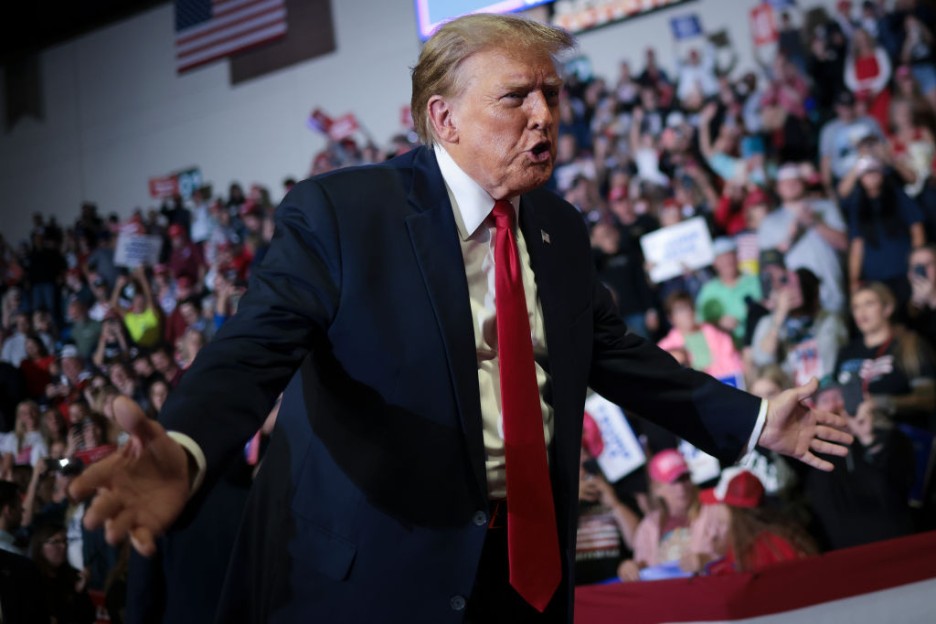President Joe Biden Calls Donald Trump's Doubts About NATO Commitment 'Un-American'

President Joe Biden criticized Donald Trump's recent remarks questioning America's commitment to defending NATO allies, labeling them as "dangerous" and "un-American."
Biden expressed concern over the potential impact of Trump's comments on the perception of U.S. reliability among global partners.
Trump, 77, who is leading the race for the Republican Party's presidential nomination, stated on Saturday that he had previously threatened to permit Russia to take unrestricted actions against NATO member countries failing to allocate 2% of their GDP to defense. This marks another occasion where the former president appeared to favor an authoritarian state over democratic allies of the United States.
Addressing the House from the White House, President Biden urged the consideration of a Senate-passed aid bill to support Ukraine in resisting a prolonged Russian invasion. Biden characterized Trump's remarks on the mutual defense pact as "dangerous and shocking."
Biden underscored the global impact of Trump's comments on the mutual defense pact, stating, "The whole world heard it, and the worst thing is he means it."
Biden, 81, asserted that the credibility of America's word holds significance.
"When America gives its word, it means something," he said. He also criticized Trump's comments for casting doubt on U.S. commitments, labeling them as "un-American."
He continued: "He doesn't understand that the sacred commitment that we've given works for us as well."
Trump has frequently portrayed NATO allies as burdens on the U.S. military and openly questioned the value of the military alliance, which has shaped American foreign policy for over 70 years, despite NATO's Article 5 mutual defense clause stating that an armed attack on one member is an attack against all members.

Following the extensive Russian invasion of Ukraine in 2022, Biden has facilitated Finland's entry into the alliance and is paving the way for Sweden to follow suit. Despite Ukraine not being a NATO member, the alliance has played a crucial role in supporting Kyiv's military defenses throughout the nearly two-year-old conflict.
In response to Russia's annexation of Ukraine's Crimean Peninsula in 2014, NATO allies collectively decided to cease the post-Cold War spending cuts and aim to allocate 2% of their GDP to defense by 2024. It's essential to note that while the spending target is encouraged, it is not a mandatory requirement for NATO members.
Read also: RELATED: Inside The $38.9 Million Estate Where Joe Biden Spent His Thanksgiving In With Family
NATO's Secretary-General, Jens Stoltenberg, emphasized on Sunday that "any suggestion that allies will not defend each other undermines all of our security, including that of the U.S., and puts American and European soldiers at increased risk." Poland's defense minister, situated in a historically vulnerable position under Russian influence, stated that "no election campaign is an excuse for playing with the security of the alliance."
Jason Miller, a senior adviser to Trump, responded to Biden's comments by stating, "President Trump got our allies to increase their NATO spending by demanding they pay up, but Joe Biden went back to letting them take advantage of the American taxpayer. When you don't pay your defense spending, you can't be surprised that you get more war."






